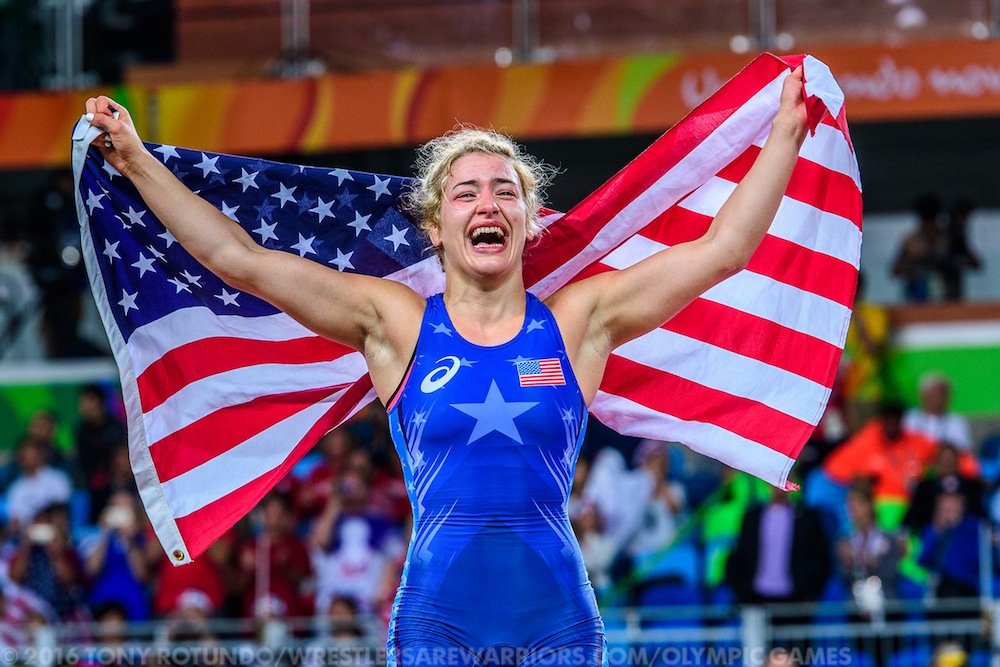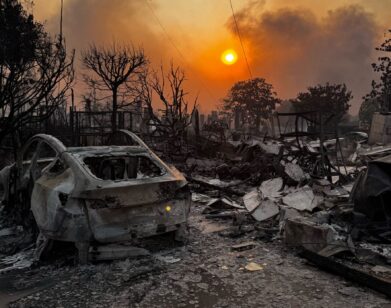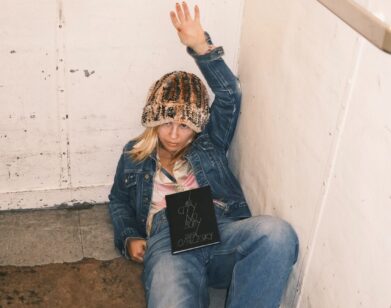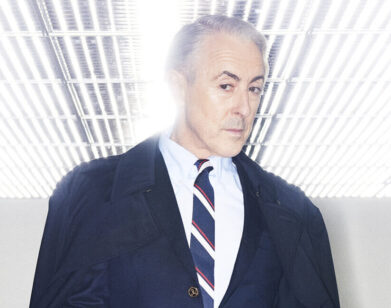Helen Maroulis’s Golden Match

ABOVE: HELEN MAROULIS. PHOTO COURTESY OF TONY ROTUNDO, WRESTLERS ARE WARRIORS.
A little over a week ago, 24-year-old Helen Maroulis made Olympic history in Rio de Janeiro by winning the United States its first gold medal in women’s wrestling. Yet to many, her name may be unfamiliar. Perhaps it’s due to the incessant Ryan Lochte coverage that the Rockville, Maryland native freestyle wrestler has not amassed the attention she deserves; regardless, Maroulis is triumphant and unfazed, and told The Washington Post, “I didn’t come here to win a gold medal for the media attention.”
And she should be. With her win, Maroulis beat out Japan’s most decorated wrestler Saori Yoshida, otherwise referred to as “Goliath” (by Maroulis in The Washington Post) and “borderline unbeatable” (The Telegraph). Her victory over the 33-year-old Yoshida, who has 13 world titles and three Olympic gold medals to her name, is nothing short of monumental—especially for women’s wrestling, a sport with so little recognition in the States that it has yet to be officially acknowledged by the NCAA.
We caught up with Maroulis over the phone when she returned from Rio to talk about wrestling boys in high school, wrestling men in Russia and, of course, winning gold at her first Olympic games.
PIMPLOY PHONGSIRIVECH: Hi Helen. Congratulations!
HELEN MAROULIS: Thank you so much.
PHONGSIRIVECH: Has it registered yet?
MAROULIS: No, it hasn’t.
PHONGSIRIVECH: I’m curious as to how you imagined beating Saori Yoshida would feel like, and whether that was the case when it happened.
MAROULIS: I think when I imagined it I thought it was going to feel like I was a conqueror. I thought it was going to feel this “Yes!” moment. Instead it was more like shock and disbelief. I was so surprised because here’s someone that … I’ve been studying them and I’ve been watching them win after win after win after win. And now I’m in the position where I’ve beat them? This is insane.
PHONGSIRIVECH: How old where you when you started wrestling? And when did you realize you wanted to pursue it professionally?
MAROULIS: Seven. I wrestled for a year and then my parents came up to me after the season and they told me that I had to quit because women’s wrestling was not an Olympic sport. This was in ’98, ’99. So they told me I had to quit because there’s pretty much no future for me, and they didn’t want me to grow up wrestling boys, fall in love with the sport, and be wrestling in high school and realize, “For what purpose?” But then two months later, the IOC [International Olympic Committee] announced that women’s wrestling was going to be added to the Olympics. My parents came back to me and they said, “We know you enjoy this and now there is a future in the sport so if you want to continue, you can.” I think that was when I started saying, “Oh, I really want to go to the Olympics.” Because in my mind, what I loved to do almost got taken away because that chance wasn’t there. When it presented itself and I was allowed to do what I love again, I thought, “Why not go all the way?”
PHONGSIRIVECH: You grew up wrestling boys all throughout high school, right? What was that like?
MAROULIS: That presented its challenges. It wasn’t always rainbows and sunshine. … When you’re included as a girl nobody cares; they give you a pat on the back and say, “Good job,” “You tried really hard,” “You tried really hard for a girl.” But once I actually started getting better and I started winning it was like, “Well, okay, now you’re a threat to everyone,” and the boys didn’t like that, the coaches didn’t like that, their parents didn’t like that. It wasn’t always kindly received. The parents would be calling me names while I was on the mat wrestling. Coaches [were] trying to make me quit or ignoring me or putting guys against me that were way better and hoping that they would just beat me up and I would eventually not return.
PHONGSIRIVECH: And who were the people that kept you going through all of that?
MAROULIS: Well, first and foremost my parents. Obviously the comments are being said to me, but I’m the one doing the sport; I’m the one that loves it and on some level that makes me oblivious to it because I don’t mind dealing with that. It’s like, “If this is what it takes to have to wrestle then fine.” I’m willing to deal with that. But I think that it was harder for my parents to have to sit back and watch that, with comments being made and things being said and things being written on forms and, “How are we going to get our daughter into a room where the coaches are willing to help?” But once we did find that room, to have that coach’s support was amazing. And, really, it was nice when a coach would just treat you like a wrestler—not like a girl, not like a guy—and would teach me the moves the same way he would teach a guy the moves. That was what really helped me.
PHONGSIRIVECH: You’ve said that wrestling made you more confident. How so?
MAROULIS: I was asked to quit every single sport I ever joined. I did ballet; I didn’t like being watched. I did diving; I was afraid of heights. [laughs] I did gymnastics and I was afraid of doing backflips. And so the instructors would literally ask my mom to never bring me back because all I would do was cry. You know, I was afraid of the dark and everything—I was just a scared little girl. But I think there’s something about when you make it through a really tough practice and you think, “Wow, I didn’t really know if I could get through that when we started it.” And then you do and it just gives you a little confidence, like, “OK. If I’ve done it once, I can do it again.” Or going into a room and it’s all boys and they’re all ignoring me and pretending like I don’t exist. The coach pretends I don’t exist. The first time I stood there, I pretty much was on the verge of crying for 20 minutes. I’m just standing and thinking, “This is so embarrassing. Everyone’s staring at me. Everyone’s ignoring me. I feel like an alien.” Eventually I stood there long enough that two guys let me start working in with them. So I wasn’t tough in that experience, but the more I went through it, I thought, “I’m not scared anymore. I’m in here, I already know what’s going to happen. All the guys are going to ignore me, so I’m just going to these two guys and I’ll tell them to let me work in with them.” So now I’m not afraid.
I went to Russia this past year in Dagestan, and it’s a predominantly Muslim area so they weren’t allowed to shake women’s hands, and it was so amazing because my coach [Valentin Kalika] fought for us to be able to wrestle there, and so we’re wrestling with these guys that have never seen women’s wrestling before. At first they’re trying to beat you up—they don’t respect you—but then they can tell that you’re persevering, you’re not quitting, you’re fighting just as hard, you’re doing the whole practice and you’re keeping up with them, you’re challenging them. The next day you can tell that you’ve earned their respect. When I started as that little girl, would I have been able to do something like that? No. But I think all of those experiences over and over and over again … little by little you realize, “Wow. I didn’t know if I could enjoy that. But I did. OK. Cool. I think I can do it again then. And this time I’m going to have more confidence when I do it again.” And it just builds and builds.
PHONGSIRIVECH: And then you were selected to train in Japan for a while—and with Yoshida. How was that?
MAROULIS: They had a training camp, they opened the door and they allowed three Americans to go in. I was one of them. I remember walking in the room and [Yoshida]—she only competes at the World [Wrestling Championships] and in the Olympics, so you only see her once a year—she walks in and she’s the first person to grab a broom and start sweeping the mats. I thought, “Wow. Here’s this legend and she’s so humble.” She’s not above anything. She’s not too good for anything. She’s just being a great teammate. And I was probably annoying, asking her to go with me all the time. She’d say yes. I could tell she wasn’t harboring any bad feelings towards me. She was very, very respectful and I remember thinking, “Wow. This is why she’s a champion. This is why she consistently wins.” I wanted to emulate that and I wanted to learn from her, from that perspective—not just how to win from a wrestling standpoint, but how to be a winner. I studied her a lot. I think that was why I was really emotional after we wrestled because I truly felt it was an honor to be able to wrestle her. It was a very powerful moment.
PHONGSIRIVECH: I always thought that perhaps the discipline that’s so ingrained in Japanese culture had a lot to do with their success in wrestling. Did you see that at all while you were there?
MAROULIS: Oh, definitely. For them, when a coach walks into a room everyone stands and bows. For us, when a coach walks in we’ll crack jokes. Valentin has seen me grumpy and moody and he’s had to deal with a wide variety of stuff. I remember when Kaori Icho came to train in the U.S. before 2012. She did everything that we did. We were lifting in the weight room and she’s standing there, and the strength coach is trying to show her how to do a power clean, and I’m thinking, if I was a two-time Olympic gold medalist I would not be trying to learn something new. I’d be like, “OK, listen. I came here to get this, this is what I need to do.” But she was just there to learn; she was there to experience it all. There wasn’t that arrogance or anything about her or Yoshida. I learned a lot from them setting those examples.
PHONGSIRIVECH: I know you went to Simon Fraser University in Canada because the NCAA doesn’t recognize women’s wrestling as a sport.
MAROULIS: Right—and right now wrestling is only offered in small colleges or universities throughout the U.S. I really enjoyed school. I loved learning. I wanted to go to a good school. All of my friends are going to D1 schools or Ivy League schools and I didn’t want to forfeit my education in order to pursue wrestling, but I knew that I wanted to be an Olympic champion. The thing is, people don’t understand that girls right now are being forced to have to pick one or the other. You are being forced to have to choose wrestling or an education. I got a scholarship going to school in Canada, but it was pretty expensive because I was an international student. And so for some girls right now, they don’t have the means or the opportunities to do both. A lot of girls are obviously choosing an education because you need a future and a career and everything, and wrestling can’t promise everyone that. I think that’s a huge barrier.
PHONGSIRIVECH: Are you seeing any changes?
MAROULIS: I’ve heard in the last year or two that they’re really close to getting a school to add Division 1 women’s wrestling. I haven’t seen it yet, but I think also that right now, everybody’s looking at the downfall to it and the risk to it and not seeing what the benefits and opportunities to it could be too. I know some incredible women that are retiring that would make amazing, amazing coaches. But if there’s no coaching position for them, they obviously are going to have to go elsewhere. I think that’s why it’s been hard for women’s wrestling in the U.S., because these athletes couldn’t stay in the program and help and coach us. They had to go make careers and lives for themselves.
PHONGSIRIVECH: What would you say to younger athletes who, like yourself, aspire to have careers in male-dominated fields?
MAROULIS: For younger athletes—women, especially, if it’s a male-dominated sport—I’d say be very careful to just be true to yourself. I spent a lot of time trying to emulate how a male wrestler was. They’re tough, they’re very confident, they don’t show a lot of emotion, and they push through everything. That’s not me at all. I’m a wrestler but I have emotions, I’m sensitive. When I stopped trying to be something that I wasn’t, I felt like I was freeing myself up to find ways to make it work for myself. I’m sensitive, but that’s good because I pay attention to everything. Just be true to you. What works for me might not work for someone else and what works for someone else might not work for me.
PHONGSIRIVECH: What’s next for you? Tokyo 2020?
MAROULIS: Yes—I’m really excited to go in another four years.
PHONGSIRIVECH: When do you have time to decompress and just relax? Or, well, do you have time for that?
MAROULIS: Well, next week I’m going on a vacation to Greece so I’ll get that time there. I’m excited for that.
PHONGSIRIVECH: Before I let you go, I wanted to ask what a normal day looks like for you—if you have normal days.
MAROULIS: Right now? I don’t know what normal is! [laughs] It’s so weird because I just went from the extreme of zoning everyone out, focusing on this one goal, this one task. And now I’m really focused on doing the media, sharing my message and hoping that it promotes women’s wrestling. But I don’t know what normal is. I don’t know what’s next but I’m enjoying every part of the process.
FOR MORE ON HELEN MAROULIS, VISIT HER TWITTER.






